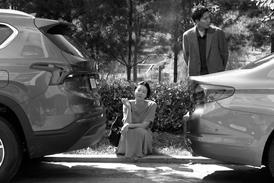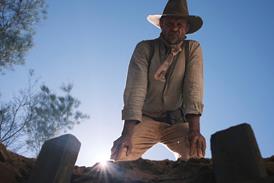Iranian director Asghar Farhadi talks about his 2011 Berlin Golden Bear Nader And Simin, A Separation, the difficulty of making films in Iran and friends Jafar Panahi and Mohammad Rasoulof.
Asghar Farhadi returns to Berlin after winning the Silver Bear in 2009 for About Elly, this time with a family drama set in modern Tehran. Nader And Simin, A Separation charts the emotional and familial disintegration that besets a husband after he separates from his wife. The film explores the delicate social hierarchy in Iran, complex family bonds and features powerful performances from its leads, which led to rousing applause at its world premiere screening at the festival..
The feature was also a hit with buyers, with Memento selling to a host of territories and with more deals on the way. The cast features Leila Hatami, Peyman Moadi, Shahab Hosseini, Sareh Bayat and Sarina Farhadi.
How did this film come together, creatively and financially?
The idea for the film came to me when I was sitting in the kitchen of my friend’s flat in Berlin nearly one year ago. I was here preparing another film but I decided to do this one instead. I was smoking a cigarette in the kitchen, listening to some Iranian music and then I decided to make it.The film is influenced by my personal experiences and the situation in Iran and also some abstract pictures I had in my mind. It was like a puzzle. The story was in my thoughts some time but when I decided to make it it happened quickly.
There are two ways to finance films in Iran: via government support or from the private sector. I chose the latter. I also received a loan from Iranian bank Pasargad. It wasn’t so hard to find people with an interest in the film as About Elly was quite a success. I could make my films with the government but I choose not to. The last three films I’ve made were without governmental support. I didn’t want to have their funding and they didn’t suggest it. I don’t want people telling me what to do - that was why I wanted to produce this film.
Are you exploring new territory in this film?
This is a logical development from About Elly. I had the feeling that that story wasn’t finished. I see this film as a continuation of that film. With Nader the hermeneutical circle and journey was complete.
What is the message of this journey?
It’s not the message of the journey that is important. It’s more about a personal question I have. Making films for me means sharing these questions with other people and to give them the opportunity to think about these and to give me feedback. After About Elly these questions still existed.
Your films deal with the politics of the heart. How much do they touch on the heart of politics?
In Iran we have the problem that if you’re making social films they are immediately connected with political issues. There’s no way out. All ‘normal life’ and the behaviour of the everyday is mixed with politics, but I don’t like politics - it’s based on interest. Politicians are focused on their own interests. In politics you rarely find traces of morality or ethics but I’m trying to express ethical issues in my work. The politics of the heart has no relation to what is going on outside.
The film’s protagonist Nader is played by Peyman Moaadi, who also starred in About Elly. Why was he right for Nader?
The style of Peyman’s performance is so naturalistic. There are one or two characters like this in all my films, people who don’t act but are like normal people. This is why I was fascinated by Peyman. He also has many similarities to the character he played.
How hard is it to make films in Iran today?
The problems have been the same for some time. There are two limitations: the political view of the government and the expectations of the people. They haven’t accepted modernity. Freedom for artists is like water for fish . The more freedom you have, the more easily you can work.
Is casting difficult?
Yes, very hard. Many of the actors work in tv and people see them every night so the pool of people to choose from is limited. That makes it very hard.
But you’re still in Iran…
I can’t stay abroad for long. As Abbas Kiarostami once said, football teams play better at home than away. I might be away for a year or so but I always need to return to my roots. Whenever I’m out of Iran I’m eager to get back.
What’s next?
I plan to make a film abroad, maybe in this city, or another, with a foreign producer. The idea I have is not so far off what I have done in my previous filmsm, so it will be a development. I have spoken to producers already and part of the work has been done. One part of the production will be from France.
What are your thoughts on Jafar and Mohammad’s situation?
My feeling is the same as all filmmakers - It’s a bad feeling. As a filmmaker you can’t ignore this situation. You have sympathy. For me it’s harder. You know him from pictures but I talked to Jafar yesterday [Feb 13]. You can’t imagine how hard it was for him when I told him I was coming to Berlin and he couldn’t come. Jafar is waiting for the second judgment, which should be coming next month. He sent me and the festival his blessings.
Are you fearful of making films in Iran in light of what has happened to them?
We’re used to it. Maybe for you, with distance, you see the fear, but we have grown up with this situation.






















No comments yet